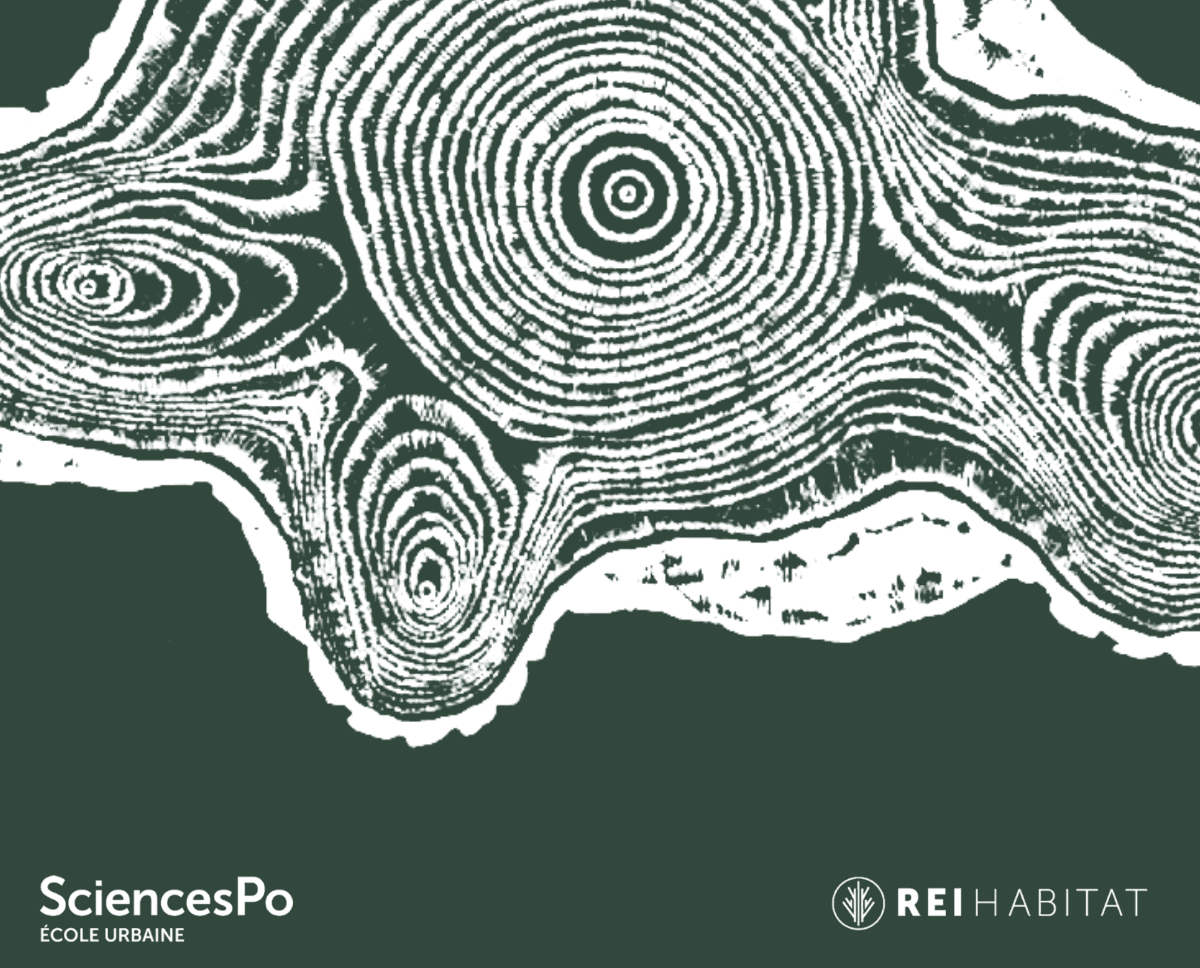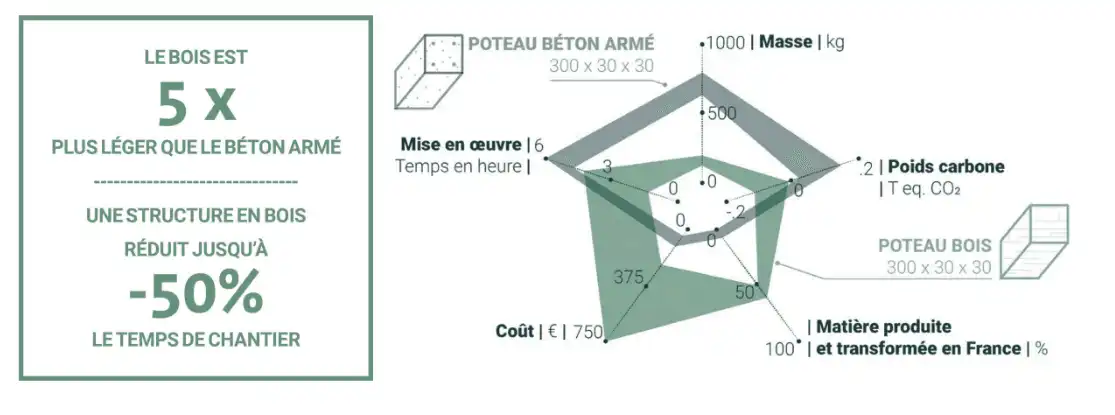Home>Building with wood: a response to climate and urban issues?

20.06.2024
Building with wood: a response to climate and urban issues?
How can the environmental performance of timber buildings be characterised and promoted beyond mere carbon indicators? REI Habitat, a real estate developer and pioneer in wooden construction, asked a group of Master in Urban Planning students this question as part of their group project.
Their order is part of the RE2020, a national environmental regulation in force since January 2022, which aims to provide a framework for and promote the ecological transition in the construction sector.
These regulations address a crucial issue: the fragility of forests in the face of climate change and the need to increase the use of wood in construction to meet carbon storage targets. This dual imperative - to preserve forest resources while decarbonising the construction sector - poses new challenges. Adding value to wood is now a key issue, in line with the themes of ecological transition and new urban models developed by the Sciences Po Urban School.

Emmanuel Carpentier, Olivia Floquet, Goulven Jaffrès and Julien Lussiez, accompanied by Marie Jorio, looked at the resilience of forests in the face of climate change, adaptation strategies, and the advantages and limitations of timber construction in terms of both climate and urban planning. They shared their experience:
"We discovered how the wood-forest-construction sector works through numerous interviews with a wide range of players (developers, engineers, operators, specifiers, as well as scientists and economists). We were able to compare these discussions with the training provided by the Master in Urban Planning, and gain a better understanding of the challenges faced by each of the professions involved in building towns and cities, from developers and planners to researchers and the sector’s players”.
REI Habitat's expectations were threefold: to produce a state-of-the-art report on the regulations, indicators and benchmarks currently used to provide a framework for the sustainability and environmental qualities of buildings; to propose indicators and benchmarks that could be used to broaden the scope of the carbon issue; and finally, to promote this new paradigm among market players.
REI Habitat wanted to share and make the results of this project accessible. The students, therefore, opted for a feedback format in the form of a leaflet. They went even further with a video report: "The wide scope given to the students and the many resources made available by Sciences Po enabled us to work on graphic formats that were particularly important to us, such as data visualisation and video editing".
Information Sessions: Masters

Find out more about the Masters programs and the wide choice of specialisations offered by the 8 Schools of Sciences Po during our webinars dedicated to applicants.